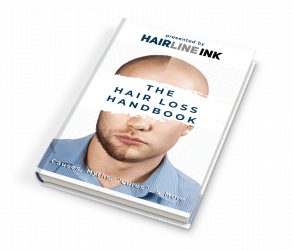Hair transplants have long been a common long-term option for those suffering from hair loss and thinning hair. Many resort to hair transplant surgery, sometimes referred to as follicular unit restoration, in hopes of restoring their full head of hair. This is accomplished by transplanting healthy follicular units from a donor site on the patient’s scalp to the area of the scalp where hair is thinning or balding.
Although new hair should eventually grow at a relatively normal rate following the cosmetic surgery, it will take months for this to work. As the procedure requires that small wounds be made in the scalp in order for hair to be implanted, scabs will likely form from this expensive surgery in the interim, drawing unwanted attention to the scalp.
Hair transplant recipients often spend tens-of-thousands of dollars on the multiple surgeries required to achieve a sufficient amount of hair density. Although some experts predict immediate results of as much as 30-percent of a patient’s original hair density, it’s likely that the amount restored will be less than 28-percent, making hair transplants a less than ideal investment.
There are other unpleasant side-effects that should be considered before undergoing the hair transplant procedure, such as sterile folliculitis, a commonly occurring rash or scarring in the transplant area. This condition causes an uncomfortable itch, and can adversely change the cosmetic look you’ve paid to receive. Hair transplant patients may also be left with a scar at the donor site. Wide scars occur in about 15-percent of patients, but raised scars can also occur, although not as frequently.
The donor site on the scalp may also be negatively impacted by the surgery. It is not abnormal for hair to thin at the donor site, defeating the purpose of this intrusive procedure, which is complete hair restoration. And hair transplants can fail completely if a recipient’s body rejects the scalp transplant, failing to re-grow new hair at all.
To avoid the alarming side-effects associated with hair transplant surgery, consider other options. Many hair loss experts specialize in techniques such as scalp micropigmentation, an affordable treatment that restores the look of natural hair follicles, without the traumatic side-effects. We offer Scalp Micropigmentation in over 50 US cities. Call or text us today at 833-HAIR-INK (833-424-7465) to schedule an appointment, learn about our pricing, or get a free quote!












